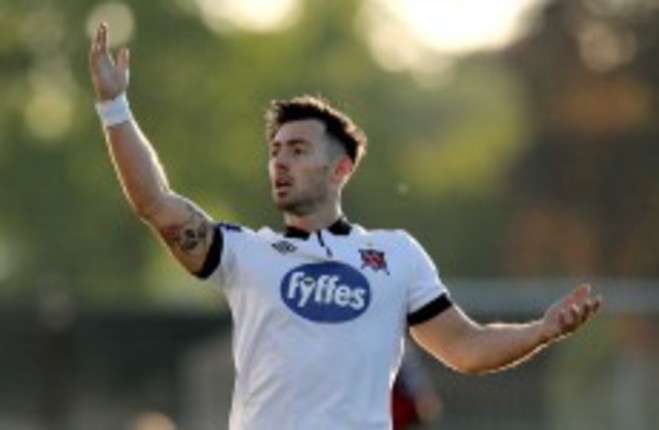FOOTBALL RETURNS THIS weekend following the nonsense that is the SSE Airtricity League of Ireland ‘mid-season break’.
We endure a mandatory break at a time when we should be passionately promoting the league, capitalising on the lack of alternative attractions for those that love football in this country. We endure the break without good reason, the debate shifting as clubs increase calls for its abolishment.
Following the switch to summer football in the early 2000s, the justification for the break was to mitigate financial losses for clubs due to clashes with major sporting events, notably World Cups and European Championships. Every second year, when this might be a valid concern, the break has already proven a failure. Last season, while Spain played The Netherlands in Brazil, I was lamenting the poor crowd in Thomond Park while a full series of our fixtures clashed with one of the most attractive group games.
In recent years, the reasoning has shifted to player welfare and the need for a family break. No-one has a problem with the concept of semi-professional players taking a summer holiday with families, but it still doesn’t add up. It only serves to bring the timing of the break into question. If it is about players and families spending time with their kids, why does it occur during the primary school term? Given the average age of League of Ireland footballers, it’s a rare player who has kids at secondary school age who can take real advantage.
We have the longest off-season in European football, we all complain about the four months of downtime. It’s fair to ask whether, over the remaining eight months of the year, an extra week off is needed. I would wager a majority of our players would, if offered a decent contract in England, be happy to give up their Christmas Day and week of holidays to play there.
In a podcast with extratime.ie during the week, Richie Towell made his feelings clear when he stated he couldn’t wait to get back playing matches. He stated that it’s simply what players want to do. Though not the topic of discussion, it was hard to avoid the impression that he, and his fellow Dundalk players, didn’t really need or want the break. Sure, it gives a few players injured at this time an opportunity to recover without missing games, but that’s no reason to retain it.
You see, the FAI’s standard players’ contract guarantees appropriate time off for players, which is only right and proper. Full-time professionals are not allowed to work more than five days a week. So in a week with two matches, players cannot train more than three other days. Any player who ticks the ‘part-time’ box on their contract cannot work more than four days. We all know the commitment needed for that overnight trip to Derry, Finn Harps or Cork, but the cynic might note that on the week of a home match, the average working day would be no more than three hours per day, on average for a full-time player.
While amateur players get nothing over the mid-season break, the standard players’ contract also ensures that professional players are paid over the break — it’s how the PFAI set up the system. This creates the clubs’ first issue; it creates cash-flow problems, it’s a week where wages have to be paid and planned for knowing that there will be little possibility of income.
It also compounds fixture issues, as clubs will all experience multiple weeks without a home match, with many facing a month without income. As an example, Cork City will not play at home in the league for seven weeks around the break. They’re lucky they’ll play at home in Europe and against Liverpool in a friendly, but not every club will have those potential income streams. The weekend off is one that would free up a midweek fixture from another time in the season, leading to bigger crowds for a home team.
Fundamentally though, at a time of the year when European leagues have just finished, we consciously take a break when we should be pushing the league to the general public. There is no football being played domestically at the moment, bar the League of Ireland. Those few European leagues that also play over the summer are not being covered on our TV screens, distracting us. Football fans are creatures of habit and we are giving them an opportunity to take a week off, to turn their attention away from the league for a week heading into the summer.
The break serves no clear purpose. We can avoid clashes with major sporting events with clear planning, flexibility and communication around fixtures. We guarantee our players’ sufficient time off through their contracts. We cost clubs money by retaining the break, it’s time to get rid of it.
Originally published at 11.00

